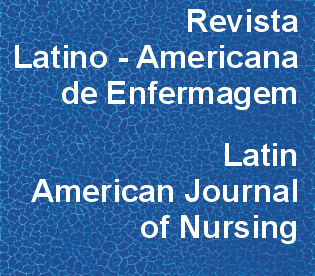Análise dos resultados dos processos de acreditação do curso de enfermagem no chile
DOI:
https://doi.org/10.1590/S0104-11692010000100015Palavras-chave:
Educação em Enfermagem, Escolas de Enfermagem, Acreditação de ProgramasResumo
A Comissão Nacional de Acreditacão da Graduação vem realizando processo de acreditação das Escolas de Enfermagem no Chile, cujos resultados são analisados neste artigo, dada à escassa evidência a respeito das fortalezas e debilidades das escolas avaliadas. O objetivo deste artigo é analisar os primeiros resultados obtidos por essa Comissão a respeito do desenvolvimento atual da enfermagem no país. Foram obtidos como fortalezas: experiência, qualificação, compromisso do corpo docente, plano de estudos definidos, infraestrutura e campos clínicos adequados. Como fraqueza obteve-se: reduzido número de docentes, modelo curricular biomédico sobrepondo-se ao modelo de disciplinas, baixa utilização de metodologias participativas de ensino, dificuldade crescente de acesso a campos clínicos exclusivos e bibliografia insuficiente. Conclui-se sobre a importância de todas as escolas de enfermagem se submeterem ao processo de acreditação, para que exista consenso sobre os níveis mínimos de qualidade, estabelecendo graus de qualificação na formação dos estudantes, como também para estabelecer a situação da profissão da enfermagem no país.Downloads
Os dados de download ainda não estão disponíveis.
Downloads
Publicado
2010-02-01
Edição
Seção
Artigos Originais
Licença
Os direitos autorais são de propriedade exclusiva da revista, transferidos por meio da Declaração de Transferência de Direitos Autorais (presente no Formulário Individual de Declarações) assinada pelos autores. Para a utilização dos artigos, a RLAE adota a Licença Creative Commons, CC BY-NC Atribuição não comercial (resumo ou código completo da licença). Com essa licença é permitido acessar, baixar (download), copiar, imprimir, compartilhar, reutilizar e distribuir os artigos, desde que para uso não comercial e com a citação da fonte, conferindo os devidos créditos autorais a Revista Latino-Americana de Enfermagem. Nesses casos, nenhuma permissão é necessária por parte dos autores ou dos editores.Como Citar
Guerrero, V. G., & Alvarado, O. S. (2010). Análise dos resultados dos processos de acreditação do curso de enfermagem no chile . Revista Latino-Americana De Enfermagem, 18(1), 94-101. https://doi.org/10.1590/S0104-11692010000100015



